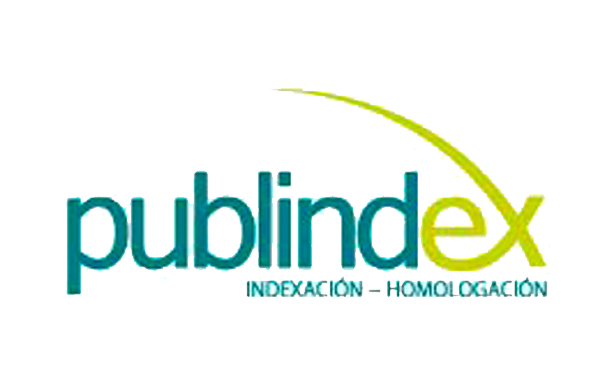Semiotics of mental health: explorations on ways to communicate mental health in theuniversities of Colombia
DOI:
https://doi.org/10.18634/sophiaj.21v.1i.1337Keywords:
coping, disability, family, psychosocial, youth, participationAbstract
This article presents the results of a semiotic-cultural research project that explored the way mental health is communicated in Colombian universities. The methodology involved tracking informational materials published on the websites and social media of 47 higher education institutions—34 private (72.3%) and 13 public (27.65%)—regarding the promotion and management of mental health. The results of the corpus analysis indicate a tendency among universities to communicate mental health from a pathological or disorder-focused perspective, compared to a clear visual approach that promotes a positive mental health perspective. Among the study's main conclusions is the need to strengthen informational and communication strategies that promote a positive mental health perspective, given the understanding of this phenomenon from a holistic perspective of the human being and the effects this can have on the institutional climate and the development of healthier institutions.References
Anicama G., J. (2018). La evaluación de la dependencia emocional: La escala ACCA en estudiantes universitarios. ACTA PSICOLÓGICA PERUANA, 1(1), 83-106. http://revistas.autonoma.edu.pe/index.php/ACPP/article/view/47
Barthes, R. (1986). Retórica de la imagen. Lo obvio y lo obtuso, 29-47. Ediciones Paidós – ISBN: 9788449322327. https://desarmandolacultura.wordpress.com/wpcontent/uploads/2018/04/barthes-roland-lo-obvio-y-lo-obtuso-382pag.pdf
Carmona, Mejía y Bernal (2004). Psicología social y psicoanálisis: Pichón con Lacan. Medellín, Colombia: Fundación Universitaria Luis Amigó. https://www.calameo.com/books/00080504376ebb4b9e8d3
Carvalho, N. (2018). Efectividad de un programa de promoción y prevención en salud mental positiva en estudiantes de Grado de Enfermería (Tesis). Universidad Rovira i Virgili. https://dialnet.unirioja.es/servlet/tesis?codigo=157193
Garaigordobil, M. (2009). Evaluación del programa "Dando pasos hacia la paz - Bakerako urratsak". Vitoria-Gasteiz: Servicio de Publicaciones del Gobierno Vasco. https://www.euskadi.eus/contenidos/informacion/investigacion_evalua/eu_investig/adj untos/InvestigacionEvaluacion2008versionfinal.pdf
Gómez, A., Vinaccia, S., y Sierra, W. (2020). Propiedades psicométricas de la escala de salud mental positiva en jóvenes colombianos: un estudio exploratorio. CES Psicología, 13(2), 102-112. https://dialnet.unirioja.es/servlet/articulo?codigo=8051032
Greenberg, N., Docherty, M., Gnanapragasam, S., Wesswly, S. (2020). Managing mental health challenges facing healthcare workers during the covid-19 pandemic. BMJ, 368. https://www.bmj.com/content/368/bmj.m1211
González Ramos, A. M., Gavín Benavent, P., & Isern de Val, S. (2025). La incorporación de la perspectiva de sexo y género en las Guías de Práctica Clínica: e202508045. Revista Española De Salud Pública, 99(1), 10 páginas. https://ojs.sanidad.gob.es/index.php/resp/article/view/1461
Hernández, J. (2020). Impacto de la COVID-19 sobre la salud mental de las personas. Medicentro Electrónica, 24(3), 578-594. http://scielo.sld.cu/pdf/mdc/v24n3/1029-3043 -mdc-24-03- 578.pdf
Huarcaya, J. (2020). Consideraciones sobre la salud mental en la pandemia de COVID-19. Rev Peru Med Exp Salud Pública, 37(2), 327-334. https://www.scielosp.org/article/rpmesp/2020.v37n2/327-334/es/
Kola L., Kohrt, B., Hanlon, C., Naslund, J., Sikander, S., Balaji, M, et al. (2021). COVID-19 mental health impact and responses in low-income and middle-income countries: reimagining global mental health. Lancet Psychiatry; 8(6), 53550. https://pubmed.ncbi.nlm.nih.gov/33639109/
Kumar, A., y Nayar, R. (202O). COVID 19 and its mental health consequences. Mental Healt, 30(1) https://www.tandfonline.com/doi/full/10.1080/09638237.2020.1757052
Lai, F., Siu, A., y Shek, D. (2015). Individual and social predictors of prosocial behavior among Chinese adolescents in Hong Kong. Frontiers in Pediatrics, 3(3), 1-39. https://www.researchgate.net/publication/276295169_Individual_and_Social_Predictors_o f_Prosocial_Behavior_among_Chinese_Adolescents_in_Hong_Kong
Lévy, P. (2007). Cibercultura, la cultura de la sociedad digital. Academia.cu. https://www.academia.edu/1738997/Ciberculturas_la_cultura_en_la_sociedad_digital_Pie rre_Levy
Lluch, T., Puig M., Sánchez, A., Roldán, J., & Ferré-Grau, C. (2013). Evaluación de la salud mental positiva en personas con problemas crónicos de salud física: correlaciones con variables sociodemográficas y estado de salud física. Salud Pública de BMC, 13 (1), 1-11. https://www.reesme.com/index.php/REESM-AEESME/article/download/169/113
Maslow, A. H. (1998). Maslow on management. John Wiley & Sons. https://www.oreilly.com/library/view/maslow-on-management/9780471247807/
Mushonga, D., y Henneberger, A. (2019). Why Peer Processes Matter: Promoting Healthy Youth Development in All Contexts Through Racial/Ethnic Socialization. School of Social Work Journal, 44(1), 24-42. https://eric.ed.gov/?id=EJ1255957
Navarro, M. (2008). Procesos cognitivos y aprendizaje significativo. Comunidad de Madrid. Consejería de Educación. Viceconsejería de Organización Educativa. https://repositorio.minedu.gob.pe/handle/20.500.12799/4809
OMS (2022). Why mental health should be a priority when taking action on climate change. OMS https://www.who.int/es/news/item/03-06-2022-why-mental-health-is-a-priority-foraction-on-climate-change Organización Panamericana de la Salud. (2020, marzo 2). La pandemia por COVID-19 provoca un aumento del 25% en la prevalencia de la ansiedad y la depresión en todo el mundo.
Organización Panamericana de la Salud https://www.paho.org/es/noticias/2-3-2022-pandemia-porcovid-19-provoca-aumento-25 -prevalencia-ansiedad-depresion-todo Organización para la Cooperación y el Desarrollo Económico. (2018, octubre 3). Panorama de la educación 2016.
Organización para la Cooperación y el Desarrollo Económico Organización para la Cooperación y el Desarrollo Económico https://www.oecd.org/es/publications/2016/09/education-at-a-glance2016_g1g6a8d2.html
Perugache, A., Guerrero, M., Guerrero, S., y Ortega, Y. (2016). Efectos de un programa de resiliencia sobre los niveles de salud mental positiva. Revista Investigium IRE Ciencias Sociales Y Humanas, 7(1), 76-91. https://doi.org/10.15658/CESMAG16.05070106
Rogers, C. R. (1987). El camino del ser. Barcelona, España: Kairós. https://books.google.com.cu/books/about/El_camino_del_ser.html?id=ch9Uzjd1_xkC&re dir_esc=y
Seligman, Martin E. P.; Csikszentmihalyi, Mihaly (2000). «Positive psychology: An introduction.». American Psychologist (en inglés) 55(1): 5-14. ISSN 1935-990X. https://www.researchgate.net/profile/MihalyCsikszentmihalyi/publication/11946304_Positive_Psychology_An_Introduction/links/561b e36c08aea8036724324e/Positive-Psychology-An-Introduction.pdf
Toribio Pérez, L., González-Arratia López-Fuentes, N. I., Oudhof Van Barneveld, H., & Gil Lacruz, M. (2018). Salud mental positiva en adolescentes mexicanos: diferencias por sexo. Revista Costarricense de Psicología, 37(2), 131-143. https://www.scielo.sa.cr/scielo.php?script=sci_arttext&pid=S1659-29132018000200131
VanKim, N. A. & Nelson, T. F. (2013). Vigorous physical activity, mental health, perceived stress, and socialization among college students. American Journal of Health Promotion, 28(1), 7-15. https://pmc.ncbi.nlm.nih.gov/articles/PMC3758412/
Vescovelli, F., Melani, P., Ruini, C., Bitti, P. (2017). University counseling service for the improvement of the mental health of students. Psychological Services, 14(4):470-480 https://pubmed.ncbi.nlm.nih.gov/29120205/
Downloads
Published
Issue
Section
License
Creative Commosn Licence 4.0








